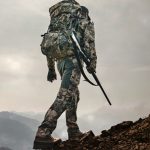NCAA members have begun preparing plans to resume college sports and return college athletes and staff to campus, as local and state governments and public health officials relax stay-at-home orders.
The NCAA Sport Science Institute, in collaboration with the NCAA COVID-19 Advisory Panel released Action Plan Considerations to help schools mitigate risks of COVID-19 spread as staff and student-athletes return.
The document, which updates the NCAA’s Core Principles of Resocialization of Collegiate Sport recommendations, provides specific guidelines and practices that schools should consider as they develop their own plans.
The considerations still follow simple practices such as maintaining good personal hygiene, wearing a face mask and remaining six feet away from other people whenever possible. It also advises schools to test and screen student-athletes as often as possible, but the limited access to COVID-19 tests for thousands of athletes likely means athletic trainers and coaching staff will have to remain hypervigilant of any potential symptoms. Mental health considerations were also mentioned in the document.
The document further advises collaboration from school athletics departments with their respective institution’s return plans and any facilities outside of their college campuses.
The NCAA COVID-19 Advisory Panel is led by NCAA Chief Medical Officer Brian Hainline and composed of leading medical, public health and epidemiology experts.
“Every community is different, and schools may return to campus at different times. But each will have to balance the need to return with the top priority of protecting student-athlete health and well-being,” Hainline said. “Until there is a vaccine in place, medical experts recommend adopting specific practices — including testing and social distancing when possible — and having plans in place for stopping spread if and when staff or students test positive for the coronavirus.”
For more information on the NCAA’s response to the COVID-19 pandemic, visit ncaa.org/covid-19.
Photo courtesy NCAA
















